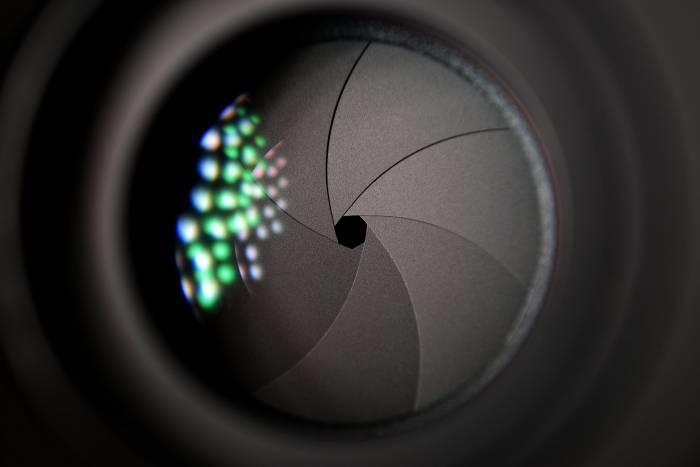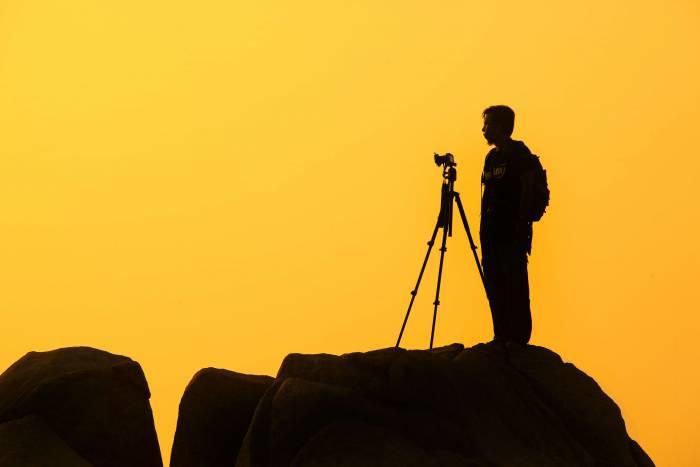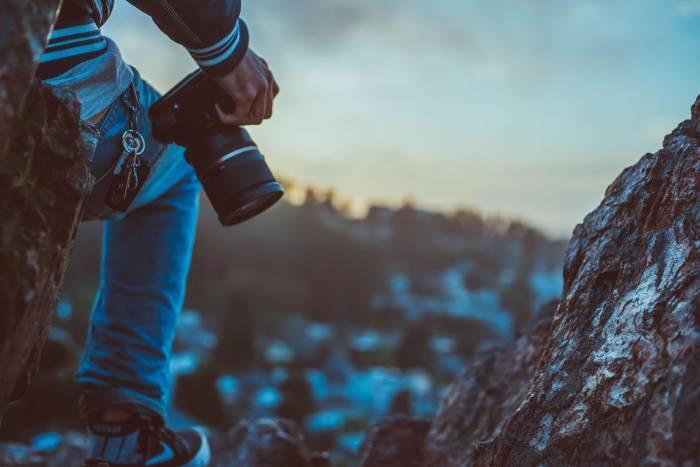"Photography is an art; but it's better than an art, it's the solar phenomenon where the artist collaborates with the sun" Alphonse de Lamartine
- You're passionate about images and art and want to discover how to take beautiful shots with your SLR camera?
- What if you did some photography training with a photo manual?
Regardless of the discipline being taught, books remains an essential tool for assimilating techniques and advice from photo professionals.
The manual is not only a first introduction to the art of photography, but also lists many different photography tips.
Read our advice if you are looking to acquire a quality photo textbook and become a professional photographer!
Find online photography courses here on Superprof.

Best Photography Books With Reviews
- "Understanding Exposure" by Bryan PetersonThis book is a fantastic resource for photographers looking to master the art of exposure. Bryan Peterson explains the fundamentals of aperture, shutter speed, and ISO, helping readers understand how these elements work together to create stunning images.
- "The Photographer's Eye" by Michael FreemanMichael Freeman delves into the principles of composition and visual design in this book. It's a must-read for photographers aiming to improve their framing, balance, and overall aesthetics in their photos.
- "National Geographic: The Ultimate Field Guide to Photography" by Bob MartinAs a renowned sports photographer, Bob Martin shares insights into capturing action shots and storytelling through photography. This book combines technical advice with captivating images.
- "Ansel Adams: The Camera" by Ansel AdamsAnsel Adams is famous for his iconic black and white landscape photographs. In this book, he discusses his techniques for achieving exquisite tonal range and composition, making it a classic for anyone interested in landscape photography.

- "The Digital Photography Book" by Scott KelbyScott Kelby's series of books offer practical tips for photographers, whether they're beginners or more advanced. His straightforward approach and step-by-step instructions make learning photography techniques easy and enjoyable.
- "Steve McCurry: Untold: The Stories Behind the Photographs" by Steve McCurrySteve McCurry's work is known for its humanistic approach. In this book, he not only showcases his iconic images but also shares the stories and experiences behind them, giving readers a deeper understanding of his work.
- "Magnum Contact Sheets" by Kristen LubbenThis book offers a unique perspective on photography by showcasing the contact sheets—sequences of shots taken during a shoot—from various Magnum photographers. It provides insights into their thought processes and decision-making.
- "Humans of New York" by Brandon StantonBrandon Stanton's project captures the essence of individuals in New York City through portraits and stories. This book is a reminder of the power of photography in telling personal narratives.
- "Understanding Color in Photography" by Bryan PetersonAnother great book by Bryan Peterson, this one focuses on the intricate world of color in photography. It explores how colors can convey emotions, set moods, and impact the viewer's perception of an image.
- "Masters of Street Photography" by Rob YarmanThis book provides insights into the work and philosophies of some of the greatest street photographers, including Henri Cartier-Bresson, Garry Winogrand, and Daido Moriyama. It's a valuable resource for those interested in candid and urban photography.
Photo Learning Book: "Learning Photography" by Nicolas Croce
Entrepreneur and photography enthusiast Nicolas Croce helps students with a concise manual full of photo lessons and photo ops. Why not take a Chicago photo lesson to learn the basics of photography.
This photography tutor has his own blog, where you can find tips and additional advice on framing, photos in manual mode, automatic mode, or choosing a tripod.
Creativity, autonomy, work...many photo concepts are addressed by this self-taught photographer!
In addition to this bestseller, Nicolas Croce has also published "Lightroom" and "Long Exposure" for those of you who want to further improve your mastery of the diaphragm and focal length. Do not hesitate to buy his books to learn photography technique for beginners (depth of field, shutter speed, natural light...).
The positive points:
- Rapid progression for students,
- Understandable exercises for a beginner level,
- Beautiful pictures with illustrations,
- Tips for taking beautiful pictures,
- An explanation of the settings on the DSLR camera.
The negative points:
- Lack of photos illustrating the exercises,
- Requires a significant amount of work.
Do not hesitate to inquire about the history of photography before you start learning.
"Frame and Set off! Photography Step by Step" by Anne-Laure Jacquart
Recognized as a photographer, Anne-Laure Jacquart has been taking photos for over twelve years and has received honorary awards for her work as a professional photographer!
Anne-Laure Jacquart brings her personal touch to photography thanks to a particular aesthetic that ranges from flash photography to black and white photos.
She has a blog devoted to this theme, and she helps students to adjust their SLR camera (soft focus, sharpness of the image, photo studio or natural light) and to work on their creativity.
Blog visitors can also learn about post processing and photo editing step by step. She explains that post-production is essential to change the interpretation of certain photographs. Anne-Laure Jacquart's work is beneficial to any new learner!
The positive points:
- A very complete photo book,
- Clear explanations - not too technical,
- Many illustrations (more than 350 photos),
- Different lines of thought for the budding photographer,
- Comparative photos for a critical eye.
The negative points:
- Limited to tips for beginners,
- No explanatory diagrams on the operation of a device.

"Photo Class in 20 Weeks" by David Taylor, Paul Lowe, Paul Sanders, and Tracy Hallett
Why not learn photography with photographers recognized worldwide?

Paul Sanders is a professional photographer specializing in art photography who uses the techniques of film photography to take beautiful shots in black and white.
Paul Lowe is a photojournalist specializing in photo reporting; his mastery of the device has earned him the World Press Photo Award four times, especially for his nature photos.
An independent photographer, Tracy Hallett works for various magazines and is interested in urban and natural landscape photography and British flora.
Finally, David Taylor is a photographer published in dozens of photography journals, but also the author of twenty books devoted to professional beginner photography training.
In short, there four are real pros to help you progress quickly in the art of photography!
The positive points:
- Learn digital photography quickly,
- Evocation of different digital devices,
- A convincing format (lesson - exercise - practice sheet - MCQ),
- Glossy pages,
- Easy to understand for the beginners.
The negative points:
- Photoshop instead of Lightroom,
- The post-production explanation.
Find photography courses in Mumbai here on Superprof.
"Learning how to Shoot Digital Photography" by Jean-Marie Sepulchre
What if you learned macro photography, focus, and white balance with a photo technique textbook?

Since 1974, Jean-Marie Sepulcher has been the head of many photo clubs for advanced or beginner levels.
He is the author of many photography books and has published many autodidactic photo books that teach how to photograph with your smartphone, SLR camera, or discover analog photography.
Jean-Marie Sepulcher also publishes e-books on specific cameras, which are very practical if you are looking to learn.
Finally, Jean-Marie Sepulcher has a blog that is accessible to all and contains expert advice straight from his learning manuals. Here, the reader can compare the photo quality of two models, study the composition of a device, or take a free introductory course (via the photo tutorial and photo workshops in NYC) without going through a traditional photo school.
The blog provides quick access to the author's various publications as well as their content.
The positive points:
- A simple and educational guide,
- Help with choosing between different cameras,
- Explanation of the functions on your device,
- Perfect for those who do not like taking analog photography,
- Advanced photo techniques (bridge, reflex, compact...).
The negative points:
- Very general advice, not detailed enough for those who are experts in photography,
- Lack of instruction for post production.
Online photo classes can be useful for acquiring more photography theory.
"Photographing Animals, Flora, and Natural Landscapes. Getting Equipped in Order to Learn to Master Photography."
Learn the history of photography and the mastery of nature photography and wildlife photography with these experts!
As a general rule, the photographic learner begins by taking pictures of what surrounds him or her, whether it is a park near his or her home, a street, or a forest.
This great guide, particularly detailed, is ideal to develop your aesthetics, your critical sense, and your creativity step by step.
Search for many a photography course on Superprof.

These authors know what they are talking about. Ivan Roux was the deputy editor for the magazine "Science and Macro Life" then editor-in-chief of "Photography" magazine.
Maeva Destombes is a journalist practicing photojournalism and food photography.
Finally, Jacques Harbonn is a journalist for the video game magazines, as well as scientific and computer science journals.
Become a pro with photography courses.
But before we give you the positive and negative points of this fifth book, why not take a look at some of PetaPixel's best photo tips:
1. Get in close
It was the famous photojournalist Robert Capa who once said “If your photographs aren’t good enough, you’re not close enough.” He was talking about getting in amongst the action. If you feel like your images aren’t ‘popping’, take a step or two closer to your subject. Fill the frame with your subject and see how much better your photo will look without so much wasted space. The closer you are to the subject, the better you can see their facial expressions too.
2. Shoot every day
The best way to hone your skills is to practice. A lot. Shoot as much as you can – it doesn’t really matter what. Spend hours and hours behind your camera. As your technical skills improve over time, your ability to harness them to tell stories and should too. Don’t worry too much about shooting a certain way to begin with. Experiment. Your style – your ‘voice’ – will emerge in time. And it will be more authentic when it does. — Leah Robertson
3. See the light
Before you raise your camera, see where the light is coming from, and use it to your advantage. Whether it is natural light coming from the sun, or an artificial source like a lamp; how can you use it to make your photos better? How is the light interacting with the scene and the subject? Is it highlighting an area or casting interesting shadows? These are all things you can utilise to make an ordinary photo extraordinary.
4. Ask permission
When photographing people, especially while in countries with different cultures and languages, it can be hard to communicate. In certain countries if you photograph someone you are not ‘supposed’ to photograph, it can get ugly and rough very quickly if you are not careful. So out of respect you should always ask permission. I have started shooting a series of school children in Pakistan. These are all posed portraits and they are looking down the lens. My guide helps me with the language and I limit myself to smiling, shaking hands, giving ‘hi-five’ and showing them the image on the back of my camera once it is done. You would be amazed how quickly people open up. — Andrea Francolini
The positive points:
- SLR camera settings shown on each photo,
- 8 concise pages on sensors, zoom, and all the basic photo techniques,
- A description of photo equipment that is accessible to all,
- Chapters defined by thematics,
- Analysis of shooting in situations of every kind.
The negative points:
- The price may be too high for a simple beginner,
- Too many themes for some students looking for a specific type of shot.
10 Essential Tips For Every Photographer
- Master Your Camera: Understand your camera's settings, including aperture, shutter speed, ISO, and white balance. Learn how these settings affect your photos and practice adjusting them to achieve desired effects.
- Learn Composition Techniques: Study composition principles like the rule of thirds, leading lines, symmetry, and framing. Composing your shots thoughtfully can make a huge difference in the impact of your photographs.
- Lighting Is Essential: Lighting is crucial in photography. Experiment with different types of light—natural, artificial, soft, and harsh—to create the mood and atmosphere you want in your images.
- Focus on Sharpness: Use proper focusing techniques to ensure your subjects are sharp. Learn about autofocus modes and manual focus if your camera allows it. A sharp image can greatly enhance the overall quality.
- Practice Patience and Observation: Be patient and observant when looking for photo opportunities. Sometimes the best shots require waiting for the right moment or exploring a scene from different angles.
- Tell a Story: Think about the story you want to convey through your photos. Capture moments that evoke emotions and tell a narrative, whether it's a single image or a series.
- Experiment with Perspectives: Don't settle for the usual angles. Experiment with high and low perspectives, wide and close shots. Changing your viewpoint can add uniqueness and creativity to your photographs.
- Post-Processing is Important: Learn basic photo editing techniques to enhance your images. Software like Adobe Lightroom or Photoshop can help you adjust exposure, colors, and other elements to achieve your desired look.
- Develop Your Style: While learning from others is important, work on developing your own unique style. Your personal perspective and artistic vision will set your photography apart.
- Critically Review Your Work: Regularly review your own photos with a critical eye. Analyze what works and what doesn't in your images. Constructive self-critique is essential for growth as a photographer.
Remember, photography is both an art and a skill that requires practice and continuous learning. Don't be afraid to experiment, make mistakes, and learn from them. With dedication and a willingness to learn, you can continually improve your photography and capture incredible moments.
Summarise with AI:















